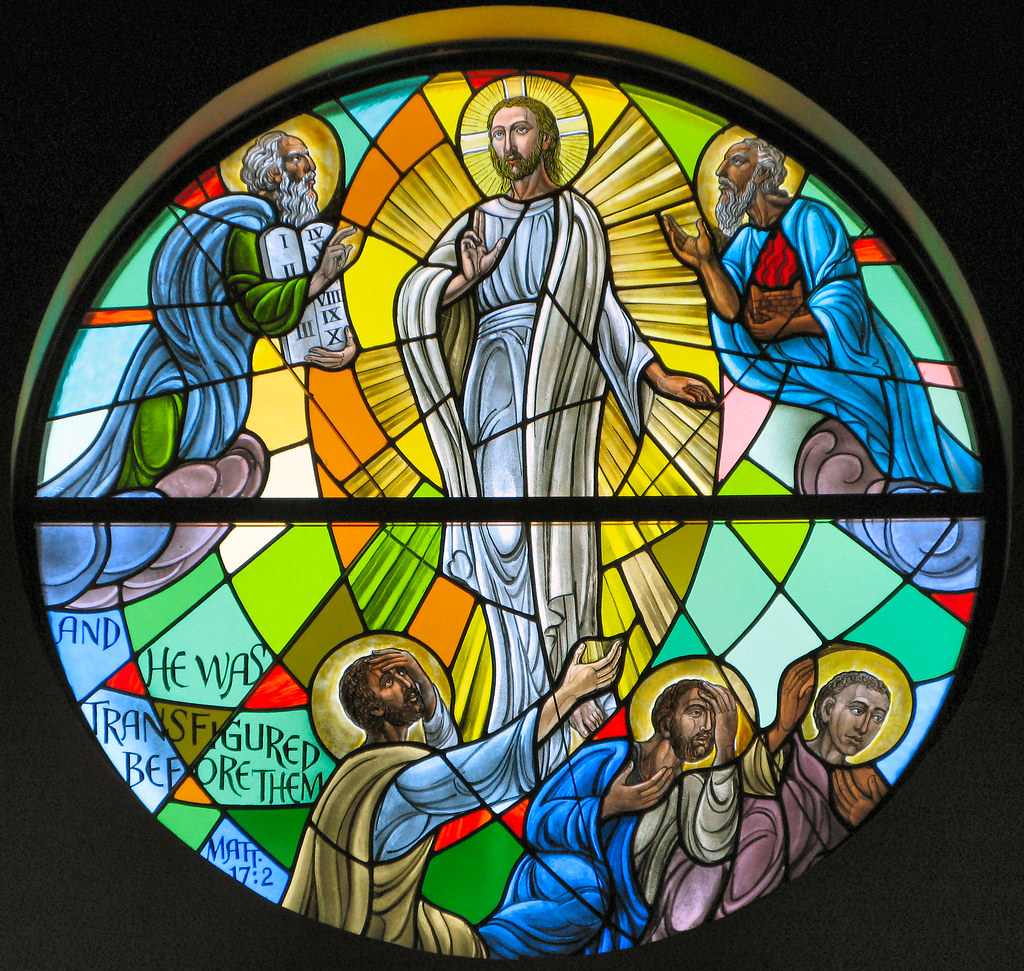II SUNDAY OF LENT - Mark 9:2-10
In this Sunday’s Gospel, we are presented with the scene of the Transfiguration, in which we can be touched by several aspects.
- We may ask ourselves why did Jesus choose only three out of the twelve Apostles for this extraordinary experience? Not all gifts are given to everybody. God gives to whom he chooses to give. The deep experience of Jesus Christ which brings a sense of bliss is not given to all, even though all of us may desire it and ask for it.
- Jesus took them to a high mountain, “where they could be alone by themselves.” It is important to have times to be alone, without anybody or anything that may disturb us, so that our hearts and our minds concentrate on the Lord. Nothing else matters. In order to have an experience of contemplation, we must make silence around ourselves. On the other side, they were four with Jesus, showing us the importance of small groups in prayer or in sharing God’s word. In the small group, they help each other to express the deep experience of God’s presence.
- We may also reflect on the role of the “high mountain”, which reminds us of the Mountain, of God’s Mountain, where he reveals himself in manifestations of power and glory, proclaiming his mercy and his love. It is on the mountain that Jesus revealed his glory. and this mountain reminds us of another mountain, the Calvary, where Jesus would give the greatest proof of love.
- To go up the mountain implies effort and endurance, which can lead to an exhilarating experience. Up there, our vision is enlarged and things fall into position. We faced with a world bigger than ourselves, which we cannot embrace. Up there, we are touched by the beauty and the harmony of what surrounds us. There have been always people who look for thrilling experiences, in which they feel high. Nowadays, many look for that in drugs; however, such experiences leave a sour aftertaste leading to emptiness and despair.
- On the mountain, alone with Jesus, they were able to contemplate Him in his glory. And they were full of joy and happiness. For a while, they forgot everything else, and Peter claimed: “It is wonderful for us to be here.” And they would like this moment to last forever. Maybe, we have forgotten that only Jesus Christ is able to give us peace, joy and happiness. Only in his company, can we climb up the mountain and make the experience of bliss, which enables us to find meaning in life.
- On the mountain, Jesus is presented and recognised as the Son. The voice, that same voice heard before during the baptism, proclaims: “This is my Son, the Beloved. Listen to him.” A deep experience of Jesus Christ will lead us to recognise that He is the Son of the living God.
- In the New Testament, God gives only one commandment, and that is about Jesus Christ: “Listen to him.” Indeed, he is the way, the truth and the life (Jn 14:6)



